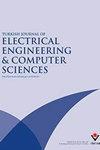Efficient virtual data center request embedding based on row-epitaxial and batched greedy algorithms
IF 1.5
4区 计算机科学
Q4 COMPUTER SCIENCE, ARTIFICIAL INTELLIGENCE
Turkish Journal of Electrical Engineering and Computer Sciences
Pub Date : 2019-04-01
DOI:10.3906/ELK-1802-166
引用次数: 1
Abstract
Data centers are becoming the main backbone of and centralized repository for all cloud-accessible services in on-demand cloud computing environments. In particular, virtual data centers (VDCs) facilitate the virtualization of all data center resources such as computing, memory, storage, and networking equipment as a single unit. It is necessary to use the data center efficiently to improve its profitability. The essential factor that significantly influences efficiency is the average number of VDC requests serviced by the infrastructure provider, and the optimal allocation of requests improves the acceptance rate. In existing VDC request embedding algorithms, data center performance factors such as resource utilization rate and energy consumption are not taken into consideration. This motivated us to design a strategy for improving the resource utilization rate without increasing the energy consumption. We propose novel VDC embedding methods based on row-epitaxial and batched greedy algorithms inspired by bioinformatics. These algorithms embed new requests into the VDC while reembedding previously allocated requests. Reembedding is done to consolidate the available resources in the VDC resource pool. The experimental testbed results show that our algorithms boost the data center objectives of high resource utilization (by improving the request acceptance rate), low energy consumption, and short VDC request scheduling delay, leading to an appreciable return on investment.基于行外延和批处理贪婪算法的高效虚拟数据中心请求嵌入
数据中心正在成为按需云计算环境中所有云访问服务的主要支柱和集中存储库。特别是vdc (virtual data centers),可以将所有数据中心的计算、内存、存储、网络设备等资源虚拟化为一个整体。为了提高数据中心的盈利能力,必须有效地利用数据中心。影响效率的关键因素是基础设施提供商服务的VDC请求的平均数量,请求的优化分配可以提高接收率。现有的VDC请求嵌入算法没有考虑资源利用率、能耗等数据中心性能因素。这促使我们设计一种在不增加能源消耗的情况下提高资源利用率的策略。基于生物信息学的启发,我们提出了基于行外延和批处理贪婪算法的新型VDC嵌入方法。这些算法将新请求嵌入到VDC中,同时重新嵌入以前分配的请求。重嵌是为了整合VDC资源池中的可用资源。实验测试结果表明,我们的算法提高了数据中心的目标,即高资源利用率(通过提高请求接受率)、低能耗和短VDC请求调度延迟,从而获得可观的投资回报。
本文章由计算机程序翻译,如有差异,请以英文原文为准。
求助全文
约1分钟内获得全文
求助全文
来源期刊

Turkish Journal of Electrical Engineering and Computer Sciences
COMPUTER SCIENCE, ARTIFICIAL INTELLIGENCE-ENGINEERING, ELECTRICAL & ELECTRONIC
CiteScore
2.90
自引率
9.10%
发文量
95
审稿时长
6.9 months
期刊介绍:
The Turkish Journal of Electrical Engineering & Computer Sciences is published electronically 6 times a year by the Scientific and Technological Research Council of Turkey (TÜBİTAK)
Accepts English-language manuscripts in the areas of power and energy, environmental sustainability and energy efficiency, electronics, industry applications, control systems, information and systems, applied electromagnetics, communications, signal and image processing, tomographic image reconstruction, face recognition, biometrics, speech processing, video processing and analysis, object recognition, classification, feature extraction, parallel and distributed computing, cognitive systems, interaction, robotics, digital libraries and content, personalized healthcare, ICT for mobility, sensors, and artificial intelligence.
Contribution is open to researchers of all nationalities.
 求助内容:
求助内容: 应助结果提醒方式:
应助结果提醒方式:


